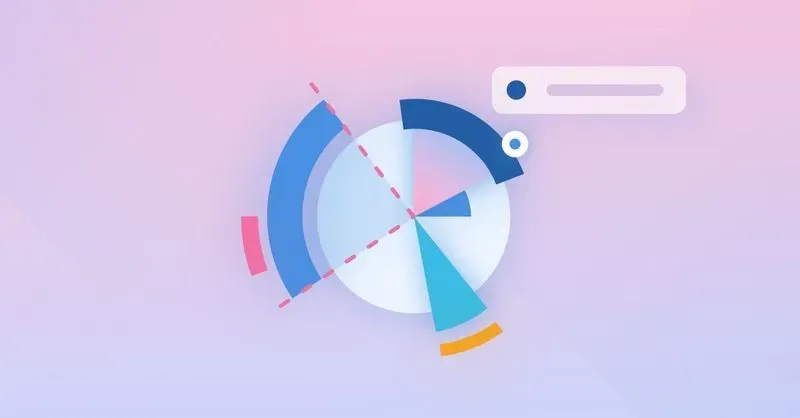10 Social Media Marketing Tools for Brands
Social marketing tools power your daily strategy and execution; here’s everything you need to know about the most popular tools.
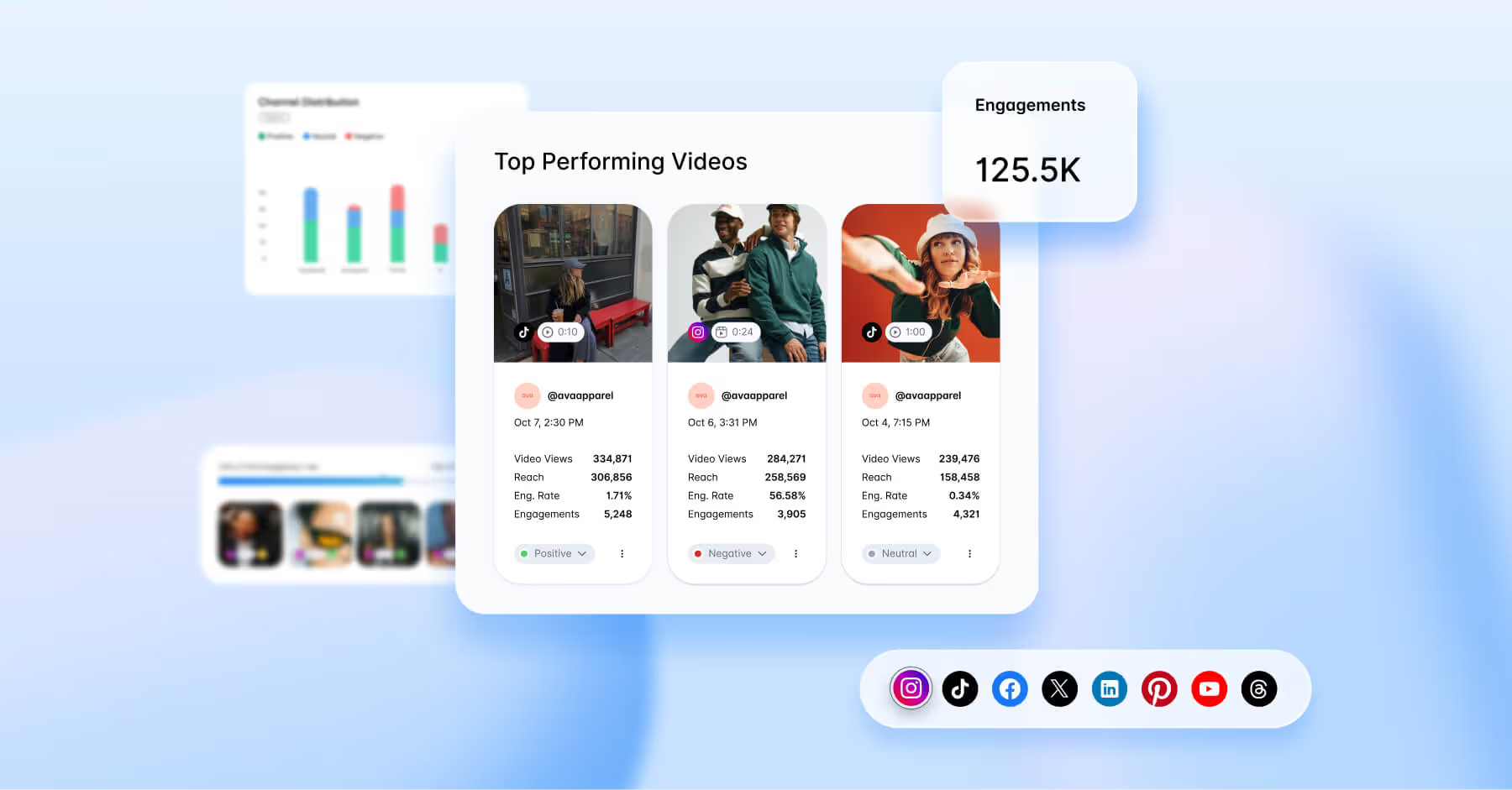
Think managing social media is simple? Think again. Aside from the platforms themselves, marketers need an array of sophisticated tools to help them create and publish content, analyze performance, source inspiration and more.
With multiple choices for almost everything from scheduling to AI content generation, understanding which social media tools will help your organization reach its unique goals can be challenging. That's why we’re here to break down how different social media marketing tools for AI, automation, analytics, and more operate, along with why they’re beneficial to a comprehensive social strategy.
TL;DR:
- Social media marketing tools centralize analytics, campaign performance, influencer management and ROI measurement.
- The right platforms save time, improve efficiency and focus on strategic, creative work instead of manual posting or reporting.
- Advanced analytics and automation make it easier to identify what drives results, benchmark across platforms and optimize spend.
- With various categories like content creation, scheduling, analytics, influencer marketing, and paid ad functions, choosing the right tool depends on your goals, budget and team size.
- The best tools integrate seamlessly with your workflow, helping you scale smarter and make data-backed decisions.
What Are Social Media Marketing Tools?
Social media marketing tools are purpose-built platforms designed to help marketers plan, execute, track and optimize social media campaigns across different social channels. These tools go beyond general social media management platforms by offering deeper performance insights, strategic campaign planning features, and other functions tailored specifically to achieve (and maybe even overachieve) marketing objectives.
Unlike social media management tools that focus on the day-to-day ins and outs of managing social publishing and community management, tools for social media marketing prioritize campaign performance, audience targeting, content optimization, and help measure ROI. They often include features like advanced scheduling, link in bio traffic tracking, competitive benchmarking and cross-platform analytics, which are all designed to support data-driven decision-making.
These tools are built to simplify your marketing workflow and centralize these features into a one platform or dashboard. The best software supports multi-channel performance reporting, letting you compare how your content performs across Instagram, TikTok, YouTube, and beyond.
Why You Need Social Media Marketing Tools in 2026
Social media marketing tools are integral to executing and maintaining a strong overall social media marketing strategy. The savviest brands do not manually schedule, post, and examine analytics from native platforms; social media marketing tools help consolidate your tactics and day-to-day functions.
Brands need social media marketing tools for a myriad of reasons; here are some of the most important.
Drive Better Results Through Analytics and Automation
The right social media analytics dashboard doesn’t just pull in the metrics you need; it helps you analyze them and craft strategic, actionable insights. What’s more, automation helps you generate reports, so you spend less time pulling numbers and more time acting on them.
The right analytics and automation help identify performance patterns, benchmark across channels and quickly pinpoint which content drives the highest ROI. Automating routine tasks like scheduling, reporting and even basic engagement tracking can free up your team to focus on creative and strategic work.
Improve ROI on Social Platforms
Social marketing teams help draw a throughline between your content, user actions and social media ROI. You can post and publish organic and paid content all day, but if you can’t tell what’s driving conversions, how can you really improve or know what’s helping you achieve your goals? Having one source of truth for analytics and metrics is key to maintaining consistency and being able to pinpoint where ROI opportunities are.
Understanding which content performs best lets you allocate your budget more effectively across platforms, allowing you to scale what works, cut what’s not and make meaningful progress towards your social media goals.
Save Time and Improve Efficiency
Manually scheduling, posting and navigating native analytics is a time-consuming effort; and the smartest marketers know their time can be better spent on other tasks. With one centralized dashboard, you can ensure your analytics are reliable and more importantly, consistent.

Save 10-12 hours each week, like the INKEY List
The INKEY List uses Dash Social to automate posts, uncover data and segment content with Boards to boost results.
See How They Do ItTypes of Social Media Marketing Tools
The best social media marketing tools offer more than just scheduling and posting capabilities: they provide important analytics and actionable insights, help you design your best creative assets, find influencers and more. In fact, a tool exists for nearly any type of marketing need you have, but sometimes, finding one that does it all can be a stretch.
Keep reading to explore some of the most popular social media marketing categories and how they can improve your marketing tactics.
Content Creation and Design Tools
Content creation tools help you create thumb-stopping video thumbnails, videos, social assets, and profile avatars.
Some of the most popular content creation and design tools include:
- Canva: A free (with more paid options) photo editing tool.
- Adobe Suite: A variety of marketing tools for design professionals including Adobe Premiere Pro, Adobe Photoshop.
- Audacity: A free, open-source audio editing software ideal for recording, mixing and enhancing sound content.
- Snappa: A user-friendly graphic design tool for beginners to help marketers create social media visuals, ads and graphics quickly.
- Vista Create: A design platform with pre-made templates and animations tailored for social media, marketing and branding.
- Desygner: A graphic design app that offers customizable templates and brand management tools for beginners and small teams.
- Pixlr: AI image and video generator to create custom images.
Scheduling and Automation Tools
Scheduling and automation tools help you get ahead and save time from manual posting to various social media platforms each day. Most social marketing tools offer some sort of scheduling capability, and sometimes, that’s all a team wants or needs.
Here are some of the most popular tools that offer social media scheduling and automation:
- Dash Social Scheduler: Offers advanced scheduling and auto-publishing tools across TikTok, Instagram, Facebook, LinkedIn, Pinterest, and X (formerly Twitter). It offers a sleek, user-friendly interface with visual content performance prediction so you can put your best content forward.
- Buffer: Buffer makes it easy to schedule posts for multiple channels from a single dashboard. It features customizable publishing queues and easy-to-use workflows for individuals and even a smaller, free plan available for lighter teams.
- Later: Later focuses on visual-first scheduling, letting users drag and drop content into a calendar, auto-publish to Instagram, TikTok, Pinterest, and more, with the ability to preview how their feed will look before going live.
Analytics and Performance Tools
Analytics and performance tools track engagement, conversions, and social media trends so marketers can understand what works, optimize campaigns, and prove ROI from other online sources.
- Dash Social Analytics and Monitoring: Dash Social makes pulling performance easy and efficient. It delivers visual, cross-channel analytics with predictive performance insights to help brands understand what works, letting you optimize content in real time.
- Sprout Social: Sprout offers customizable reporting and in-depth analytics across networks, giving teams clear visibility into engagement, reach, and campaign effectiveness.
- Emplifi: Emplifi combines AI-driven insights with competitive benchmarking and performance tracking, equipping marketers with data to measure ROI and refine their strategy.
Influencer Marketing Platforms
Influencer marketing platforms help brands discover, vet and collaborate with creators who align with their target audience. These influencer marketing platforms streamline outreach, manage brand partnerships and track performance metrics, making it easy to scale authentic, high-impact influencer campaigns.
- Dash Social Creator Management: Dash Social’s Creator Management tool helps brands centralize influencer relationship management, track campaign performance, and measure earned media with automated reporting.
- AspireIQ: AspireIQ is one of the most popular creator management tools and offers end-to-end tools for creator discovery, campaign execution, and long-term relationship management.
- CreatorIQ: CreatorIQ delivers enterprise-grade influencer marketing capabilities, with robust creator vetting, customizable workflows, and integrations to fully measure the impact of influencer relationships.
Paid Social and Ad Optimization Tools
Paid social and ad optimization tools allow marketers to manage marketing budgets, target audiences and optimize creative performance. These platforms provide real-time analytics and automation features that help brands maximize ROI and fine-tune social media campaigns for better engagement and conversion.
- Dash Social: Brands can request permission to run creator posts as paid ads and generate Social Advertising reports to monitor paid performance alongside organic KPIs.
- Meta Business Suite: Meta Business Suit offers paid tools like ad creation, management capabilities, and cross-platform publishing for advertisements.
- TikTok Ads Manager: TikTok Ads Manager is perfect for brands that solely post ads from TikTok. TikTok Ads Manager lets you create, manage, and optimize your ad campaigns.
Top 10 Social Media Marketing Tools for 2026
Here’s a more thorough breakdown of 10 of the most popular social marketing tools for content and influencer management, content creation and analytics and reporting.
1. Dash Social
Dash Social is a social media management and analytics platform built for brands focused on content, social commerce and creators. It combines content predictions powered by Vision AI, to help social teams figure out their best-performing media from your content library, along with cross-channel social media analytics and custom reporting in one streamlined dashboard.
Brands like Breeze Airways replaced their existing social marketing tools with Dash Social, to provide one, easy-to-use and centralized tool. With Dash Social, they were able to increase TikTok views by 70% and Instagram impressions by 162%.
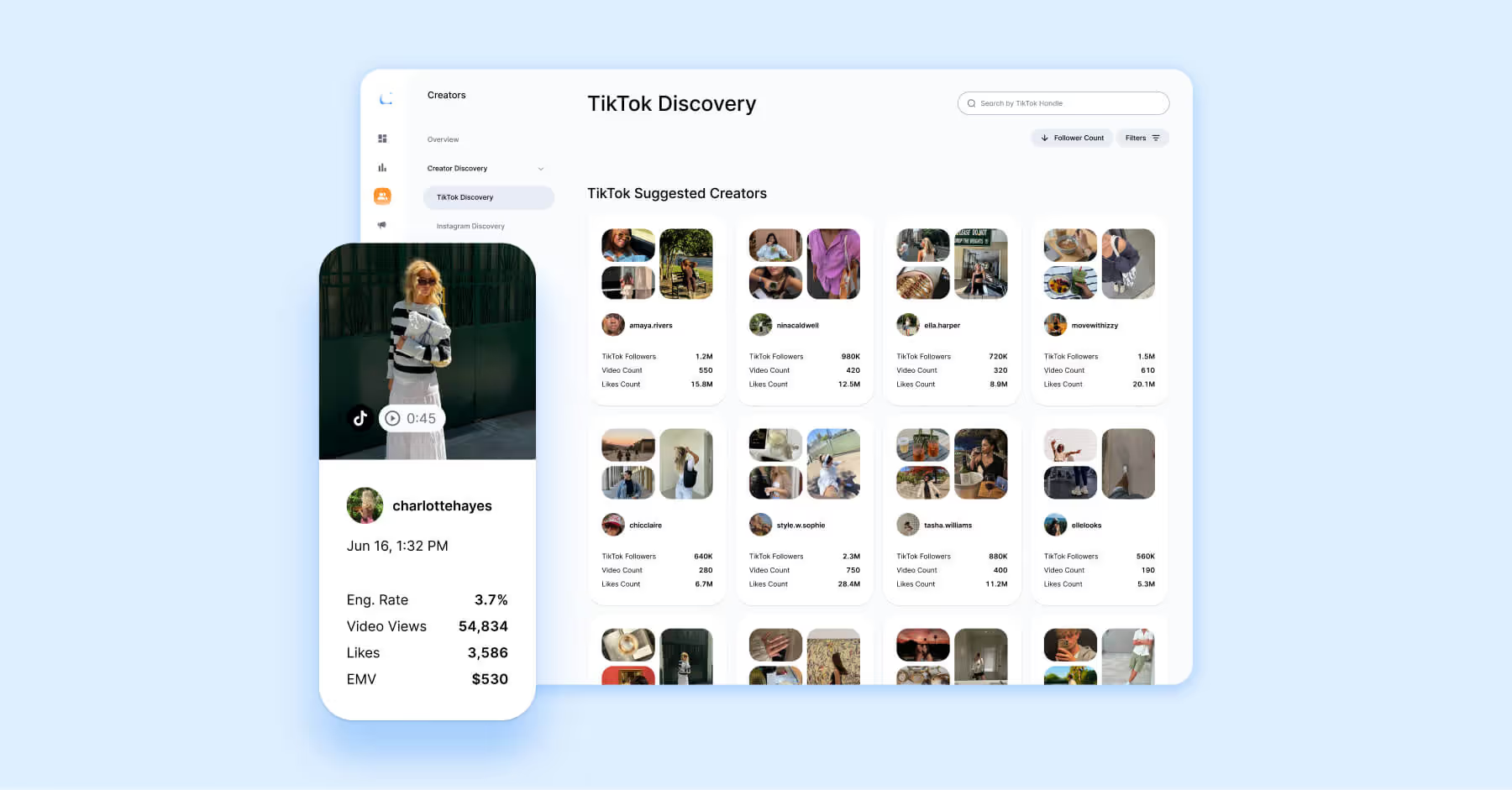
Key features:
- LikeShop
- Creator sourcing and management
- Social Analytics and Monitoring
- AI-powered Social Listening
- Multichannel scheduling
- Community Management
- Social commerce tools (shoppable media, UGC galleries)
- Custom dashboards
- Multi-user collaboration with unlimited seats
Pricing:
- Grow plans with unlimited seats available for $499 monthly
- Engage plans with unlimited seats available for $899 monthly
- Advance plans with unlimited seats available for $1,599 monthly
- Enterprise plans with unlimited seats available for $2,999 monthly
Ideal user: Enterprise brands requiring cross-channel insights, creator and influencer tracking, sophisticated reporting and social commerce tools.
2. Hootsuite
Hootsuite is a widely used all-in-one social media management tool with scheduling, engagement and analytics tools. It supports nearly every major social platform and offers workflows to foster team collaboration, basic social listening and more.
Key features:
- All‑in‑one social scheduling and monitoring
- Social listening
- Analytics across platforms including Facebook, Instagram, LinkedIn, TikTok and X
- Integrations with Slack, Zendesk and Mailchimp.
Pricing:
- Standard packages available for $99 monthly
- Advanced packages available for $249 monthly
- Enterprise packages available with custom pricing available
Ideal user: Mid-size businesses to enterprises and agencies needing a flexible and scalable platform with strong collaboration and broad app integrations.
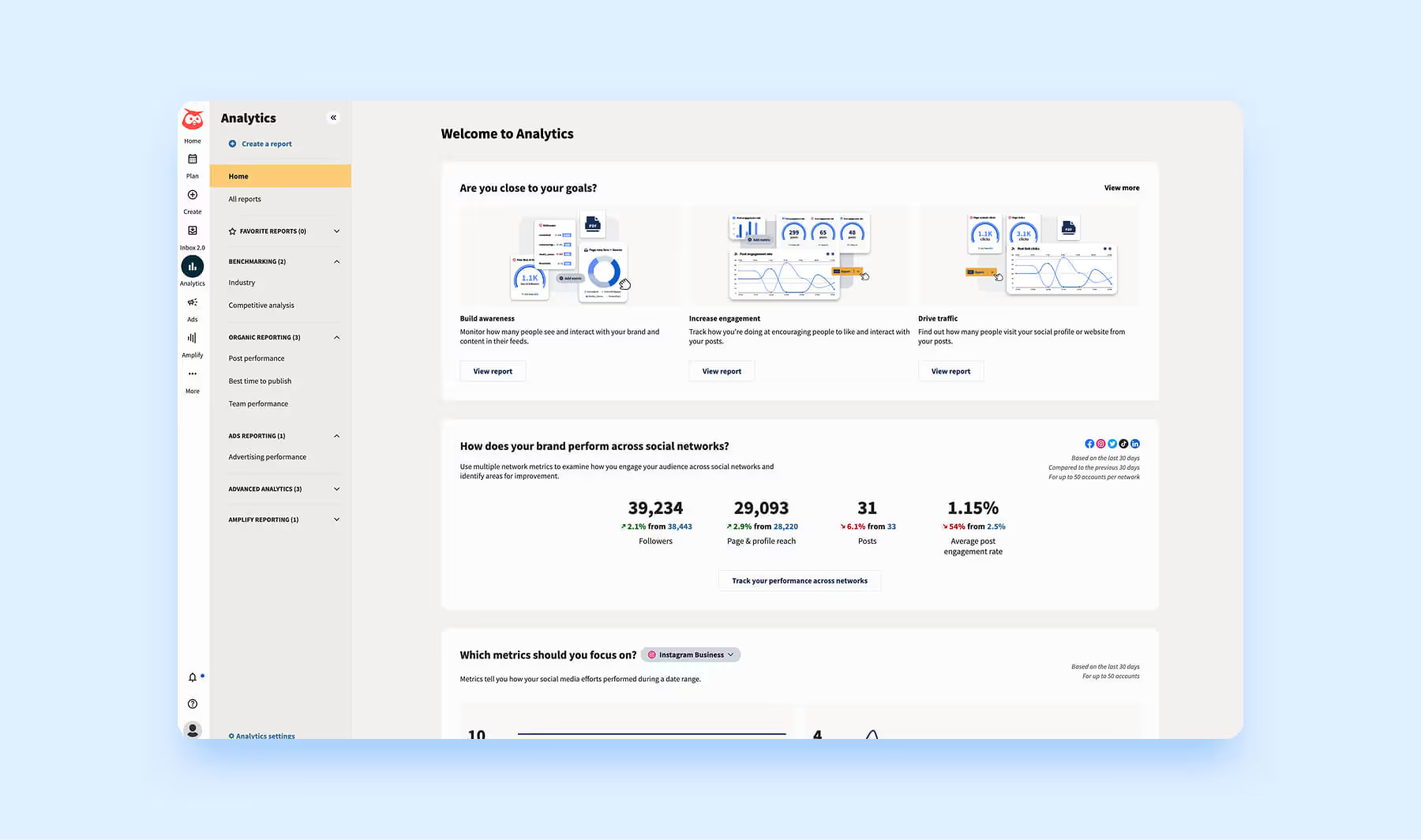
3. Later
Later is a marketing platform that’s perfect for scheduling and planning content across Instagram, TikTok, and other platforms. It has a drag-and-drop calendar, media library along with simple analytics that make it a great choice for individuals and small teams. Later also includes influencer discovery and campaign tools through its Later Influence platform, a perfect option for brands looking for a creator management function to their marketing tool.
Key features:
- Visual drag‑and‑drop content calendar with auto‑publishing for Instagram, Facebook, Twitter and Pinterest
- Hashtag suggestions
- AI caption tools
- Later Influence
Pricing:
- Starter packages starting at $25 monthly
- Growth packages starting at $50
- Scale packages starting at $110
Ideal user: Influencers, enterprise-sized companies, agencies managing brands and/or influencers.
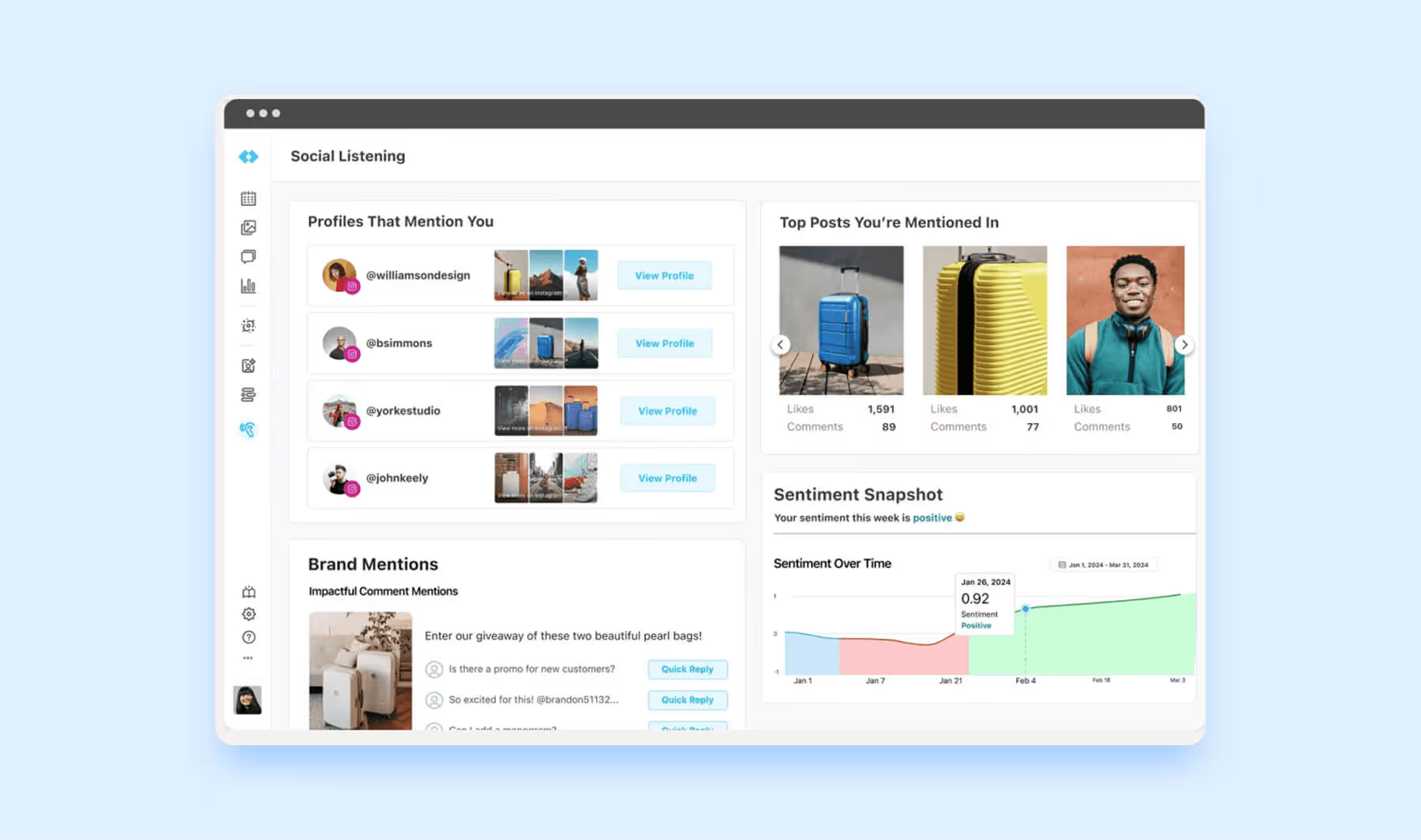
4. Sprout Social
Sprout Social offers multi-channel social media publishing, employee advocacy features, social listening and reporting in one platform. It’s designed for teams who need structured workflows, in-depth analytics, and support for social customer care. It has a more technical interface, making it a good option for a tech-savvy team.
Key features:
- Publishing, collaboration, approval workflows for content across platforms
- Smart inbox and engagement with sentiment analysis
- Analytics, keyword listening, competitor tracking and detailed reporting
- Customer care tools, AI reply suggestions, API and helpdesk integrations
Pricing:
- Standard packages starting at $199
- Professional packages starting at $299
- Advanced packages starting at $399
- Enterprise packages available with custom pricing to reflect personalization
Ideal user: Medium to large teams or customer-facing brands that require enterprise-level service.
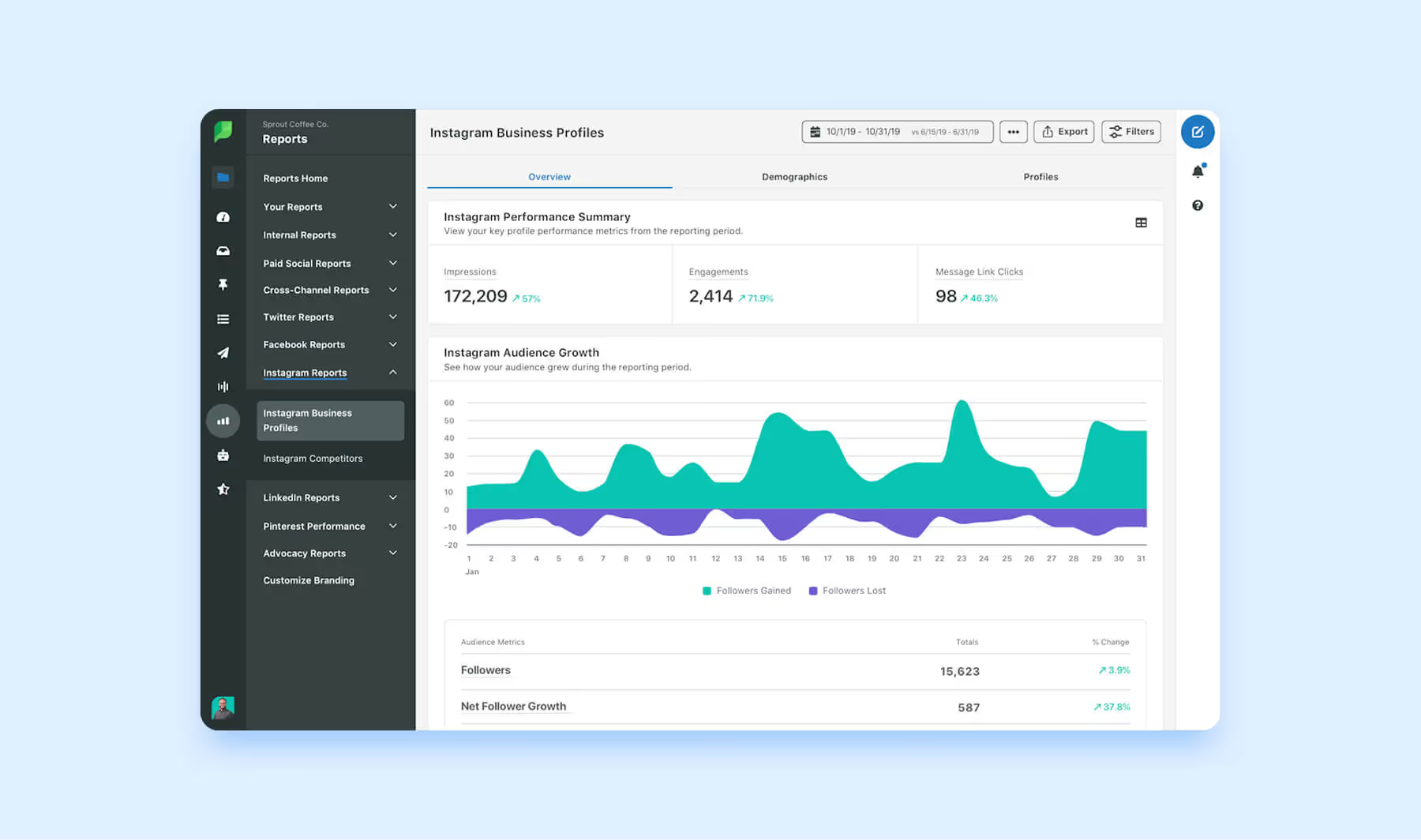
5. Loomly
Loomly is a content planning and publishing tool built with simplicity in mind. It offers scheduling, approval workflows, content ideas, and analytics. It’s best for small to midsize teams, particularly those with Google or Canva accounts, as the platform offers integrations with these tools to streamline the content creation and measurement process.
Key features:
- Multi-channel scheduling with approval workflows
- Analytics on engagement metrics and post-performance
- Content ideation tools, tagging, calendar views and campaign planning
- CRM integrations and security controls for teams
Pricing: Starter and Beyond packages available, public pricing unavailable
Ideal user: Small to mid-sized teams or agencies wanting a streamlined calendar-first platform.
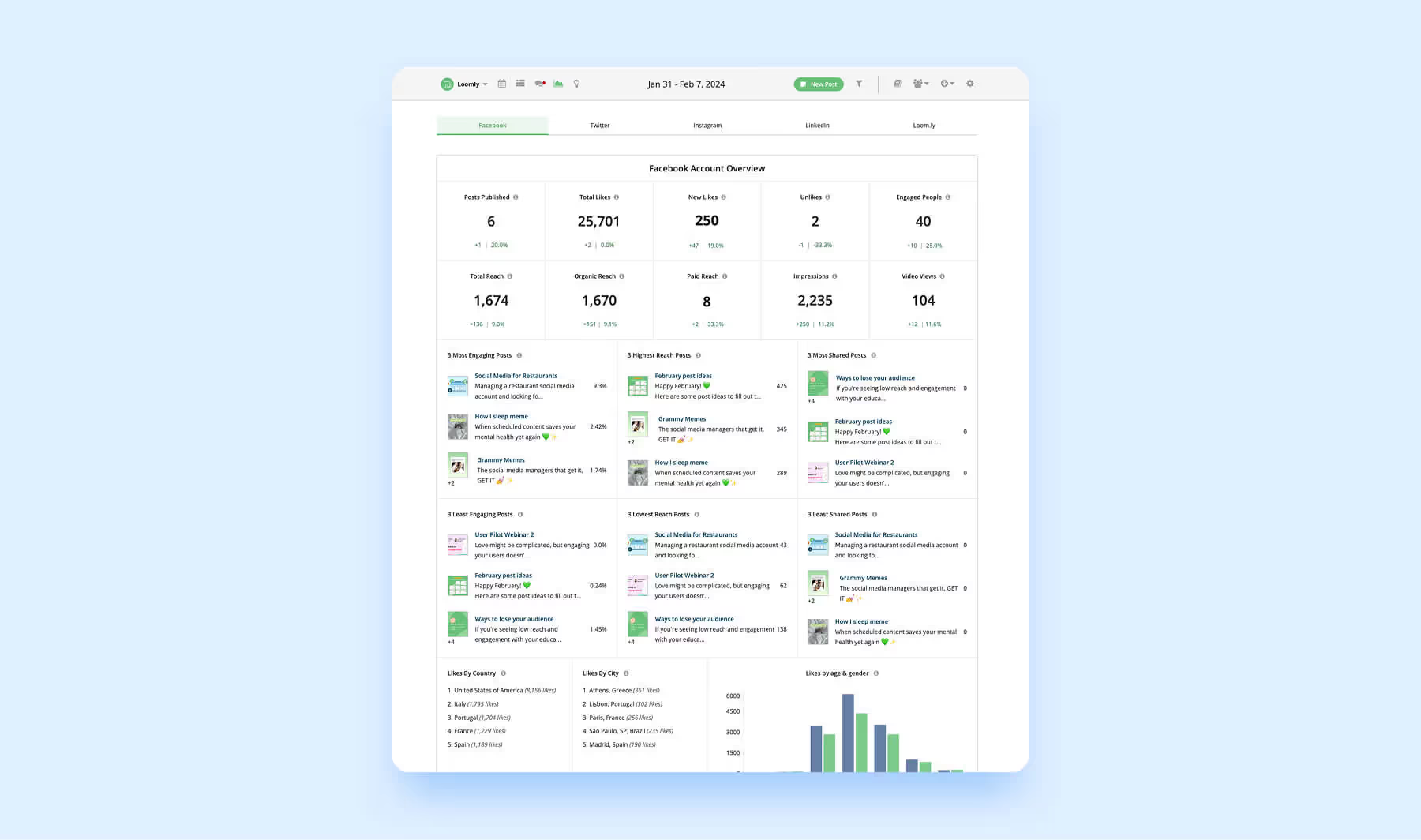
6. Planoly
Planoly is built primarily for Instagram and Pinterest, offering a visual content calendar, AI caption tools and link in bio tools. It focuses on helping small brands and creators plan and execute content. Its tools are lightweight but intuitive, making it a good fit for visually driven accounts. It also offers a basic free plan, making it a great option for brands looking to try out basic tools before committing.
Key features:
- Visual content calendar for Instagram-first scheduling
- AI caption writer
- Basic analytics and comment inbox (limited to recent comments)
Pricing:
- Social Planner packages available for $16, $28 and $43 monthly
- Creator Store packages available for $20 or $54 monthly
Ideal user: Instagram and Pinterest-focused creators, entrepreneurs or small brands who need a simple visual planning tool.
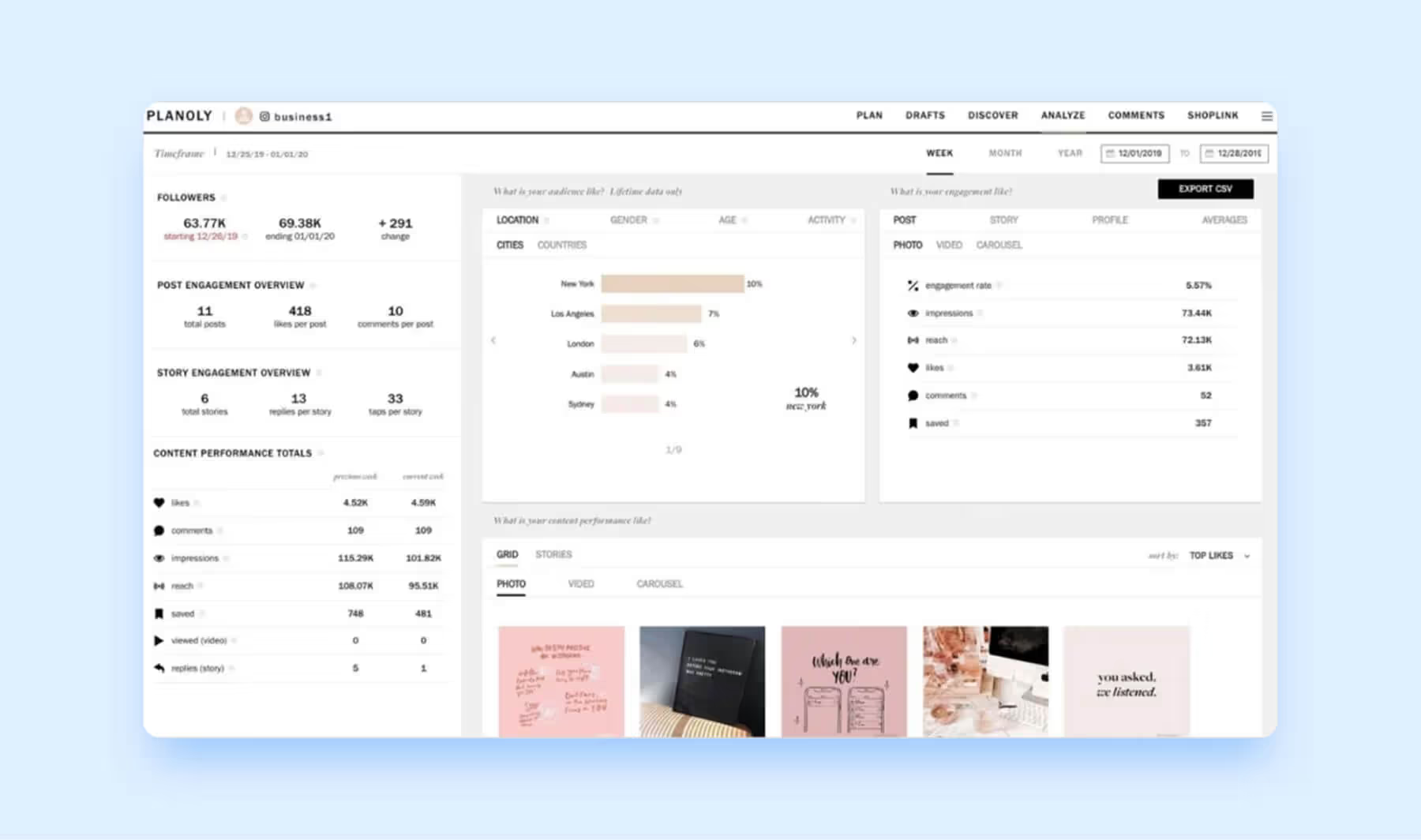
7. Sprinklr
Sprinklr is an enterprise-level marketing platform that unifies social media marketing, customer care, advertising and analytics. It’s a great option for brands with multiple handles, and is known for its ability to manage complex global workflows. It's best for large enterprises needing a full customer experience suite with built-in social media marketing functions.
Key features:
- Social listening
- Analytics
- Social media advertising management
- AI automation, workflow and ticketing systems
- Ominchannel customer experience management across social and other support channels
Pricing: Public pricing unavailable
Ideal user: Large global enterprises and contact‑center operations requiring unified and strict governance over social operations.
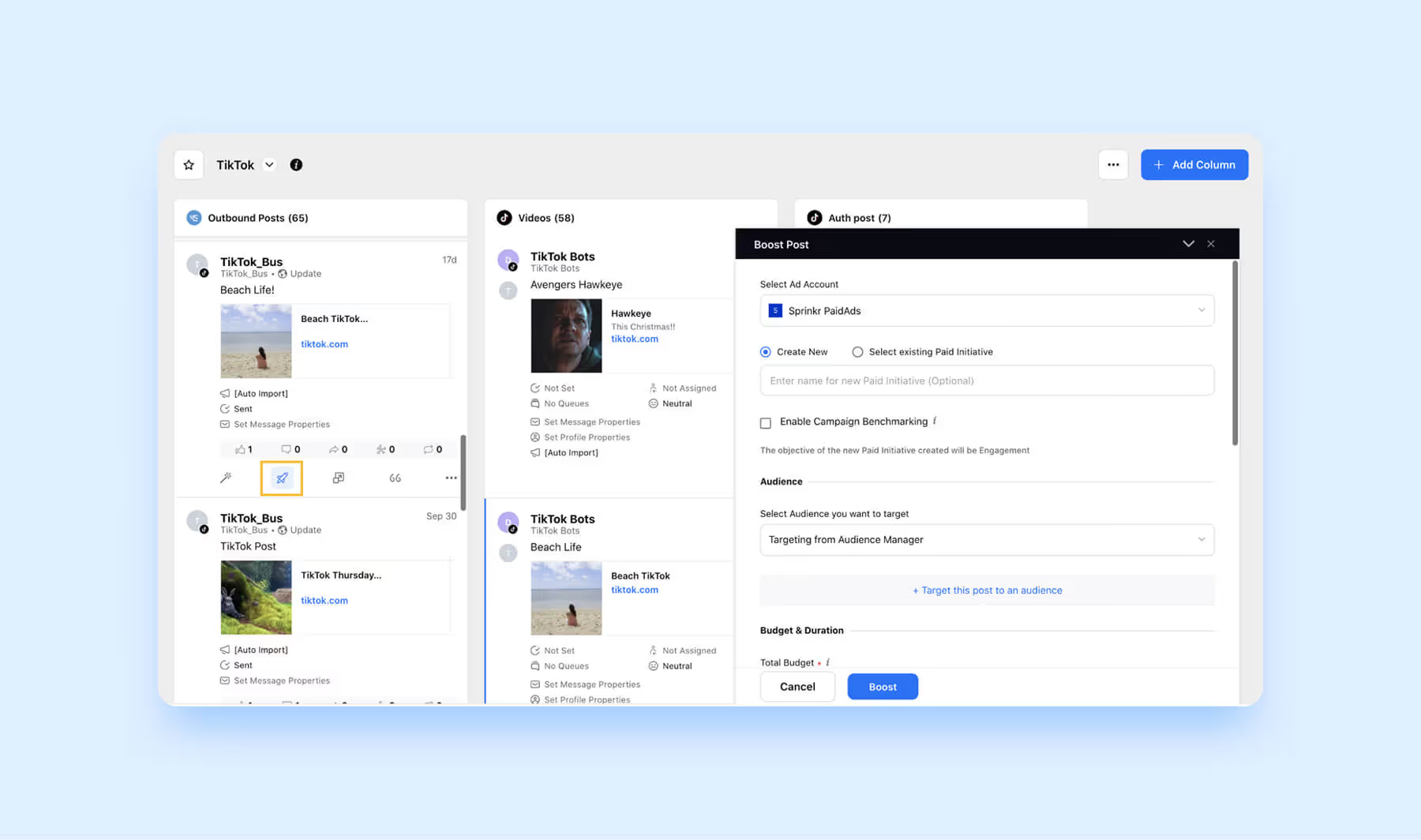
8. Bazaarvoice
Bazaarvoice is a UGC and social commerce platform that helps brands collect and manage reviews, ratings, Q&A and influencer content. It’s heavily focused on e-commerce management for retail brands. Brands use it to build trust, drive conversions and manage their online reputation, making it a great choice for brands looking to maintain their digital footprint across review sites, forums and more.
Key features:
- Shopper‑content engagement: product reviews, Q&A, ratings syndication
- Influencer/UGC campaigns, content moderation, analytics for shopper behaviour and content impact
Pricing: Public pricing unavailable
Ideal user: Retail brands, agencies managing multiple brands, enterprise-size brands.
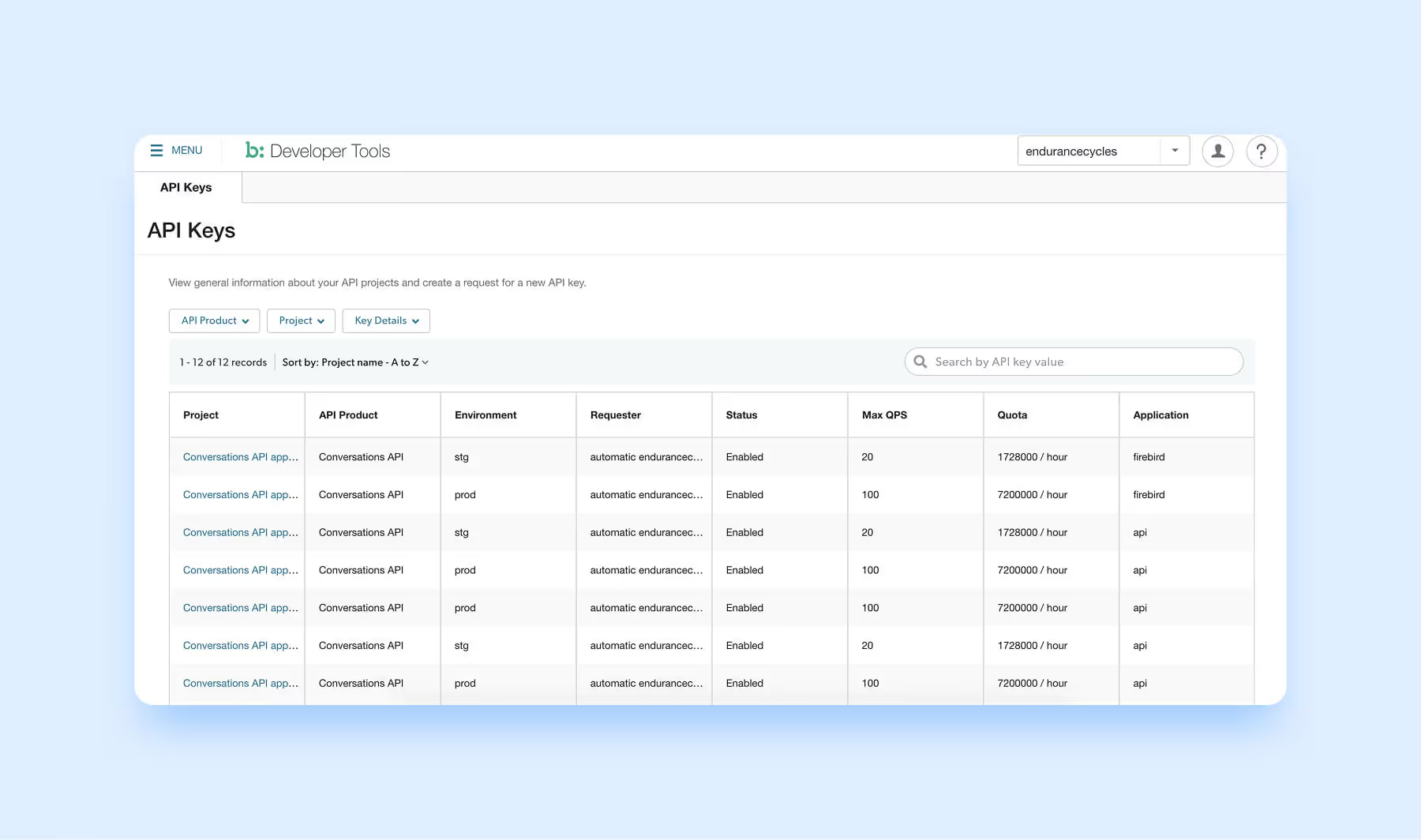
9. Emplifi
Emplifi is a social marketing and commerce platform with tools for publishing, listening, analytics, customer care, and influencer marketing. It’s best for brands that prioritize campaign insights, community management, and UGC workflows. It also offers AI-driven insights and scalable reporting, which is a great option for growing teams or those with a keen interest in supporting their customers.
Key features:
- Unified scheduling, publishing, listening and analytics.
- Influencer campaign support and UGC content libraries
- AI-powered insights, chatbots and reputation tools integrated in one cloud platform
Pricing: Public pricing unavailable
Ideal user: Growing CPG or retail brands that need integrated scheduling, influencer marketing.
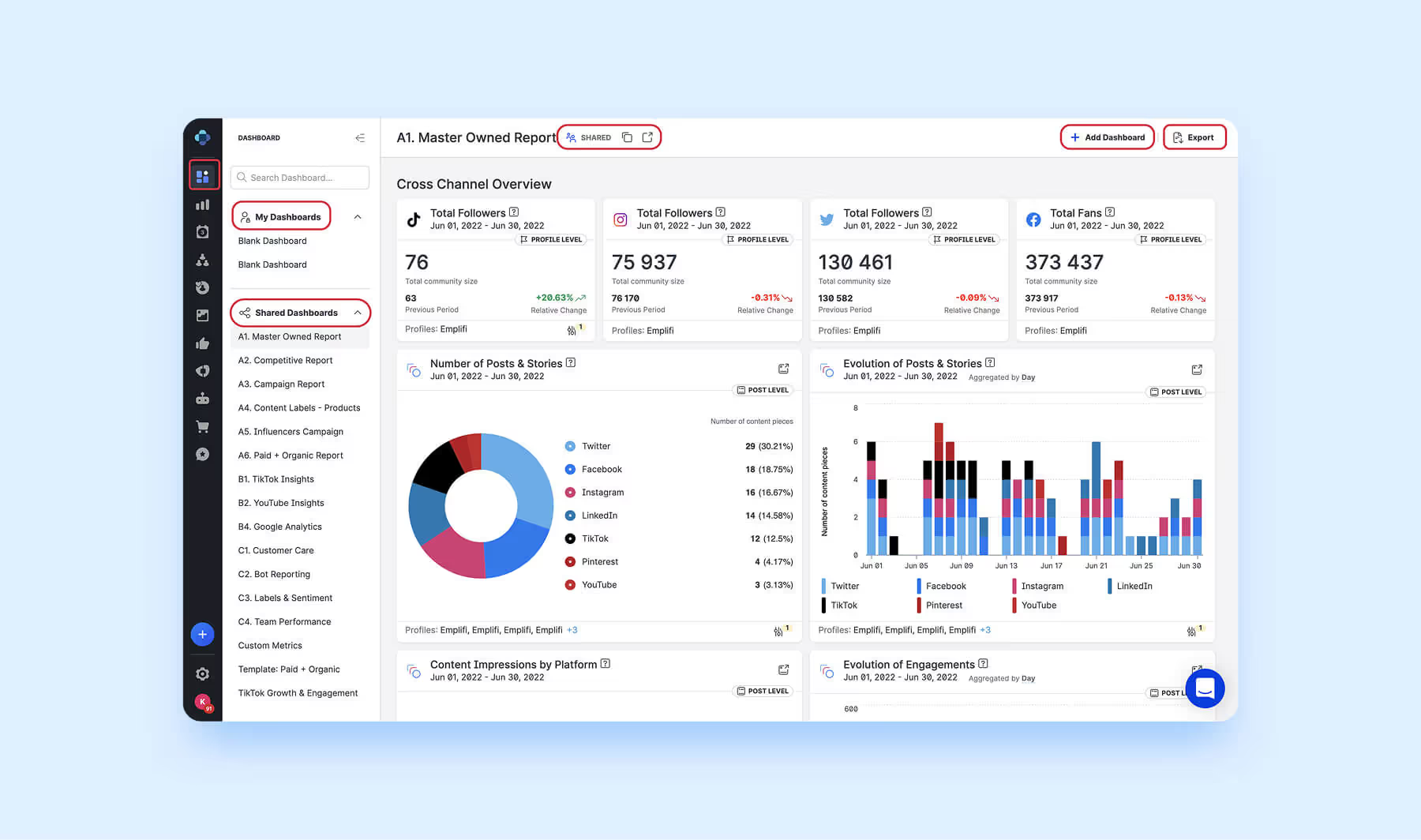
10. Canva
Canva is a graphic design platform that has grown to include basic social scheduling and publishing for creators and marketers. It’s ideal for crafting branded visuals and campaigns (brands can load their brand colors directly to the platform, eliminating guesswork with hex codes and font matching), with drag-and-drop tools, templates and team collaboration features. While its scheduling tools are more basic than other tools on this list, it’s a great choice for small marketing teams without a dedicated designer.
Key features:
- Intuitive graphic design editor with branded templates
- Built-in scheduling and auto-publishing for social platforms
- Brand kits, collaboration workflows, basic analytics (to see who’s using your templates or designs)
Pricing: Free tier available, Canva Pro at $10 monthly with unlimited content and simple scheduling, Canva Teams at $10 monthly per user with minimum seats
Ideal user: Creatives, small brands and content teams who want powerful visual workflows and basic scheduling without heavy analytics needs.
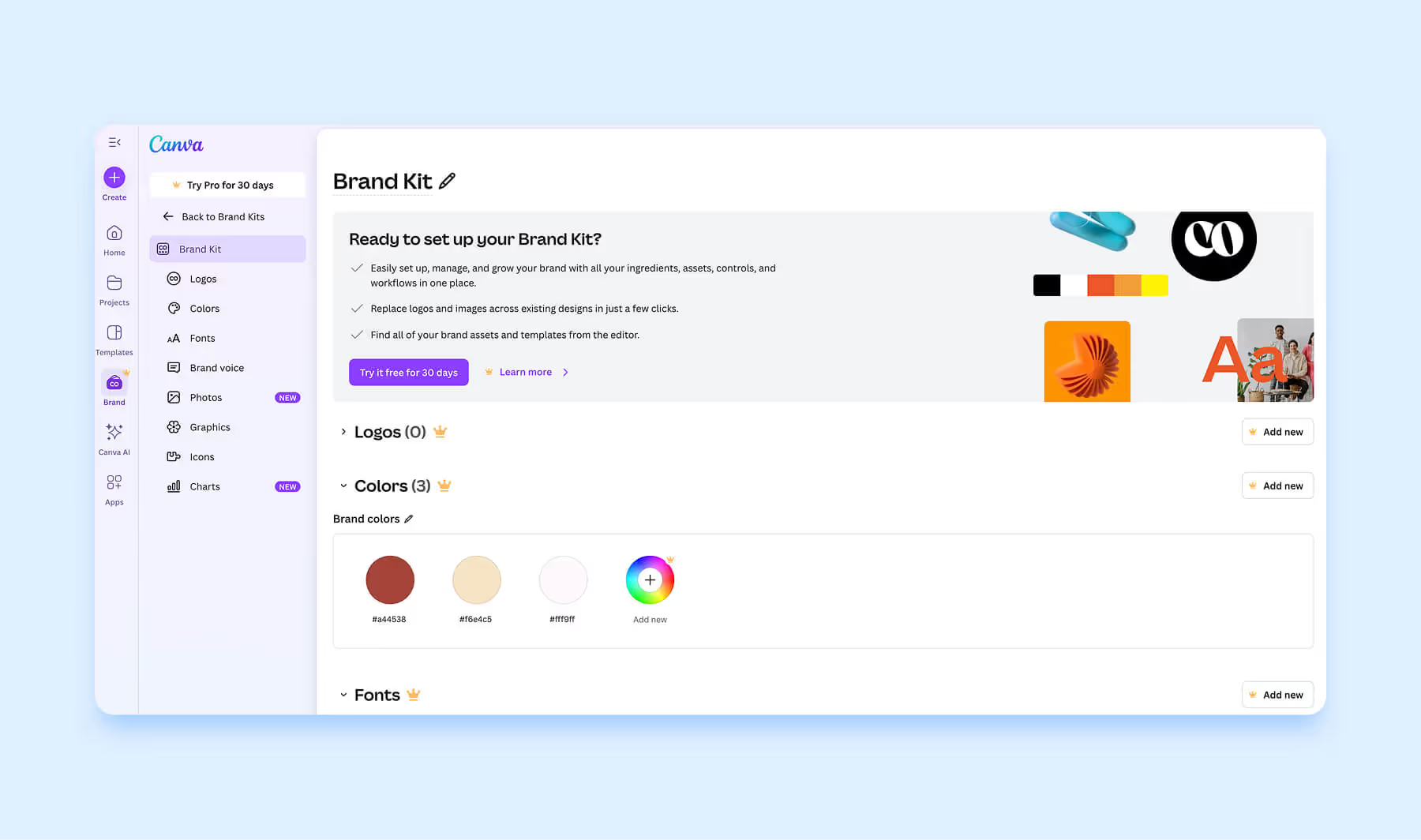
Choosing a social marketing tool to help your team go beyond everyday account management and into the nitty gritty of your campaigns, influencer relationships and more often involves various stakeholders and decision makers. To help you and your team make more sense of the top 10 social marketing tools, we’ve created a chart to simplify the comparison process.
How To Choose the Right Tool for Your Brand
With a multitude of social media tools on the market, there are what feels like endless choices for brands, all with a variety of options. The right tool will offer the right features that cater to the main tactics in your strategy. For example, let’s say a small business is seeking a social media tool and comes across a robust tool that supports a variety of social platforms, hundreds of global social media handles, advanced analytics and more. A tool with these features is likely very expensive, with more than a small business actually needs, and is likely better suited for an enterprise-sized organization with multiple global handles and a wide-reaching team.
Simply put, just because a tool offers the most features, doesn’t mean it’s the best fit for you.
Some of the main questions that brands should answer before selecting a tool are:
- Budget: What’s your social media budget?
- Goals: What broader business goals, marketing goals, and social media goals do you have in mind?
- Team size: How many seats does the tool offer? Are there enough for team members that need to use it? Is it scalable for organizational growth?
- Platform focus: Which platforms do you need tools for?
Like any decision that will impact your team’s day-to-day workflow, you’ll need to answer many questions before you discover the perfect tool for your team. To help make sense of all the relevant tool factors your brand needs, it might be time to turn to a decision matrix.
Here is a decision matrix to help guide you through answering any question you have before committing to a tool. Before you dive in, here’s how to use the matrix:
- Identify your top priorities: For example, are you more focused on content scheduling, analytics, or sourcing UGC?
- Compare tools: Use the matrix to match your needs with what each tool factors. Use checkmarks (like the example below) to include one checkmark for the worst fit, two checkmarks for almost a fit, and three checkmarks for the best fit.
- Weigh trade-offs: Consider the price and ease of use alongside relevant features.
Tips for Getting the Most out of These Tools
Once you’ve chosen your social media marketing tool, the real value comes from how you use it. These platforms are built to streamline strategy, boost collaboration and partnerships and deliver better performance. But only if they’re integrated smartly and used to their full potential. Here’s how to make that happen:
Integrate Tools With an Existing Tech Stack
Your social tool should work in sync with the rest of your tech stack. Connect it to your CRM to track the customer journey or sync it with your CMS to speed up content publishing. Integrations save time and give you a clearer view of how social efforts impact broader marketing goals.
Train Your Team Properly
Even the most powerful tool falls short without proper training. Make sure everyone from creators to analysts understand how to use the platform efficiently. Most tools offer onboarding support, tutorials, or certifications that help teams get up to speed faster and avoid costly mistakes.
Test, Analyze, Iterate
Don’t treat your strategy as a one-and-done. Use the tool’s analytics to test different content formats, posting times, or engagement tactics. Look at the data, see what’s working and tweak as you go. The more you experiment and adjust, the better your results will be over time.
Social Marketing Tools FAQs
Is social media a marketing tool?
Yes, social media is a powerful marketing tool that helps brands build awareness, connect with audiences, drive traffic and generate sales through targeted content and engagement.
How do you use social media as a marketing tool?
To use social media effectively, set clear goals, choose the right platforms for your audience, create engaging content, schedule posts consistently and track performance using analytics to refine and optimize your social strategy.
What are the best practices for social media marketing tools?
Choose social media management tools that align with your goals, integrate with existing workflows (or solve a workflow pain point your team is facing) and offer insight into audience behavior. Prioritize the tools that support automation, performance tracking and cross-platform scheduling to improve your performance and reach your marketing goals over time.





